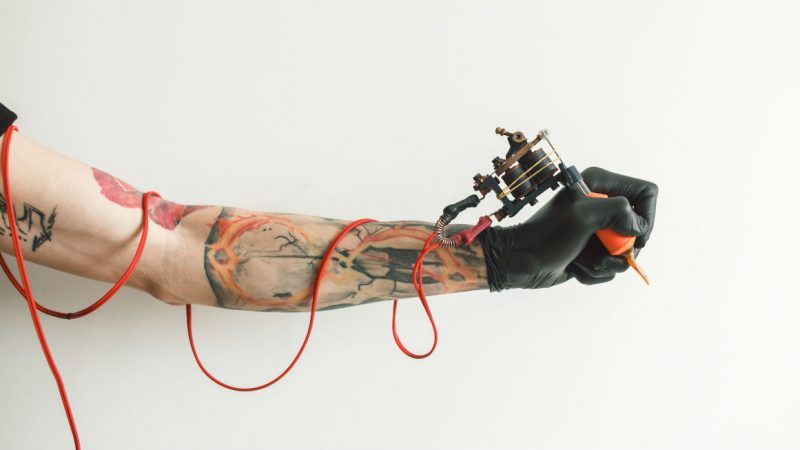Kentucky's Proposed Ban on Tattooing Over Scars Would Hurt Those Seeking Second Chances
The Public Health Department wants to ban a common tattooing process. Artists say that the concern is unscientific and harmful to clients.

Paige Spear is a paramedical tattooist in Bowling Green, Kentucky, where she helps her customers use tattoo art to camouflage scars and vitiligo, and recreate areolas and nipples for customers who have undergone mastectomies. Spear isn't performing medicine and she and her clients both understand the risks of tattooing on sensitive types of skin. Nevertheless, Spear says a new regulation from the Kentucky Department for Public Health (DPH) would be "devastating" both for her shop, THE STUDIO Tattoo Co., and for her clients.
WLKY reports that the DPH has recently proposed new regulations that would ban tattooing over scars. Several tattoo artists in the state have already spoken out against the proposed regulation. Not only is the practice common in their line of work, but the new rules do not appear to stem from medical concerns.
In fact, the DPH has yet to give its reasoning for wanting to ban the practice. A statement from the Cabinet of Health and Family Services simply says, "Regulations in this area have not been updated for about 15 years."
Spear tells Reason that there are two "major concerns" associated with tattooing over scars.
Some clients are prone to keloidal scarring, in which the skin overreacts to an injury and produces a raised mass of scar tissue. The American Academy of Dermatology explains that keloids are not cancerous and that not everybody gets them. Simply put, not every scar is in danger of overgrowth.
Spear says the second concern is tattooing a scar that is too fresh. A scar should be older than 12 months before going through the tattooing process.
"Other than those two major things, there isn't really a reason someone couldn't tattoo over a scar," she says.
Spear believes that the regulation is too vague and she would rather see it reworded to include the two specific concerns. Prohibiting the practice altogether would leave artists and their customers in the lurch. "Imagine if you were someone who wanted a sleeve tattooed on your arm and had a carpet burn near your elbow when you were [five] and had a scar so you couldn't get tattooed in that one specific spot—that would make for an awkward tattoo."
Spear also tells Reason that the ban would impact those trying "to feel better about themselves." She's helped women with mastectomies "feel a sense of normalcy," covered up scars on veterans that evoke traumatic memories, and empowered people who have engaged in self-harm to move forward with skin art. A blanket ban on those services would likely hurt more people than it helps.
A public hearing regarding the changes is scheduled for May 28.


Show Comments (61)